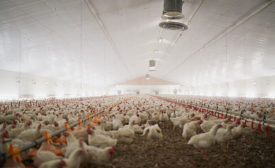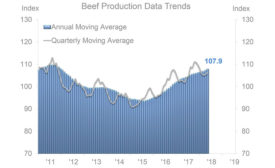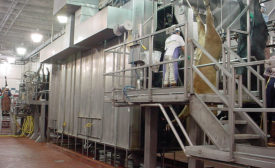Meat and Poultry Processing
Meat Science Review
Kansas City BBQ takes over 71st RMC
Attendees at this year's Reciprocal Meat Conference tasted and experienced authentic Kansas City-style barbecue.
September 18, 2018
Automation and robotics in meat and poultry processing
Episode 1 of The National Provisioner's video series on trends in the meat & poultry industry with Jorge Izquierdo of PMMI.
September 17, 2018
Poultry Perspectives
Taking a different approach to employee safety and food safety training for poultry workers
Use innovative tools to train
Read More
Processing Tech
How two poultry processors are improving their wastewater treatment systems
Tech infusion to wastewater effusion
Read More
Stay ahead of the curve. Unlock a dose of cutting-edge insights.
Receive our premium content directly to your inbox.
SIGN-UP TODAYCopyright ©2024. All Rights Reserved BNP Media.
Design, CMS, Hosting & Web Development :: ePublishing














